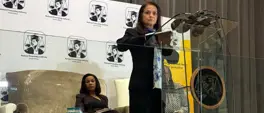Implementation of BELA Act a step forward in the struggle for mother tongue education, say WC ANC, Good Party
Carlo Petersen
17 June 2025 | 5:43In statements observing youth day on Monday, both parties reflected on how the students of 1976 fought for the right to learn in a language that empowered them.
- Basic Education Laws Amendment (BELA) Act
- BELA Bill
- Youth Day
- African National Congress (ANC)
- GOOD Party
- Western Cape

Picture: Paylessimages/123rf.com
CAPE TOWN - Nearly 50 years after the Soweto uprising, the African National Congress (ANC) and the Good Party said that the struggle for learning in mother tongue languages in the country's schools was far from over.
In statements observing Youth Day on Monday, both parties reflected on how the students of 1976 fought for the right to learn in a language that empowered them.
The parties agreed that the implementation of the Basic Education Laws Amendment (BELA) Act was a step forward.
Leader of the opposition in the Western Cape provincial parliament, Khalid Sayed, said: "We want to again commend the ANC government for signing into law the BELA Bill, which is now the BELA Act, ensuring that children going into our schools can now be taught in the language of their choice."
Good Party secretary-general, Brett Herron, said the BELA Act would ensure that no child was excluded from a quality education because of the language they speak at home.
"The BELA Act is not the end of the road, but it is a step toward fulfilling the promise of 1976, a South Africa where education liberates rather than excludes. A South Africa where every child, regardless of race or language, has the right to learn and thrive," said Herron.
Herron said that the act protected indigenous languages and ensured language policy served all learners and communities.
Get the whole picture 💡
Take a look at the topic timeline for all related articles.















